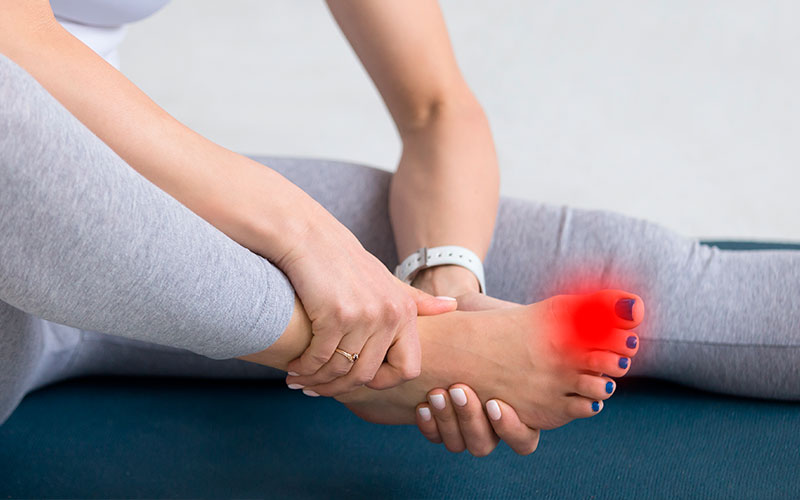Symptoms
If you notice swelling in your feet or legs, you should definitely tell your primary care doctor, says Cleveland Clinic Vascular Medicine specialist Leslie Gilbert, MD. Swelling, or edema, can be caused by many things and it,s important to try to understand what is causing it.

“If people see any redness, blistering or swelling in the legs, especially if it is getting worse, they definitely need to see their doctor,” she says. Take note of what makes it better or worse. Your doctor will want to know how long has it has been present and whether there has been any change to the pattern of the swelling.
Symptoms
Some patients get referred to the Doctor for evaluation of their swelling. At the first visit, she goes into a bit of a detective mode to determine what might be the cause.
“I ask a lot of questions about their medical history. Do they have heart issues, kidney problems, liver or thyroid problems? Arthritis? Is the swelling in one leg or both? Could this be from a medication?” she says. “Is the swelling painful?”
She examines the legs and asks what time of day the swelling is worse, what seems to trigger it and what helps relieve it. Where is the location of the swelling? Does it affect the foot and toes or does it start at the ankle? How far up the leg does it extend? Is there a change over the course of the day and improvement overnight?
Other questions she typically asks:
- Sleep: How long do you sleep at night? Do you sleep in bed? Some people sleep in a recliner but that means they are not really elevating their legs at night, which reduces swelling. If you sleep eight hours, do you do all eight in a row or do you get up and watch TV awhile before going back to bed?
- Activity levels: Do you spend the entire day sitting at a computer or watching TV with your legs down? Does walking leave you short of breath? “A lot of people develop trouble walking as they age and will only take a few steps from room to room. This means they are not using their calf muscle, which helps pump fluid out of the legs,” she says.
- Are you overweight? Obesity can make swelling worse, and it can make you more likely to be sedentary, perhaps even ride a scooter in public. “Many people gain weight as soon as they start using a scooter,” she says.
- Salt intake: You may not add salt to your food, but do you know many foods are very high in salt? “Do you eat many things out of a can? What about ketchup? Cold cuts? Hot dogs? Hamburger Helper or Rice-A-Roni? That is all loaded with salt,” she says.
- Medication changes: Some medications can cause swelling, especially if it is in both legs.
- Hormones: If you are a younger woman, does the swelling happen at certain times in your monthly cycle?
Consult a Specialist
The team of surgical specialists at Northwest Surgical Specialists provides excellent care to adults, senior citizens, and children of all ages. With many years of experience in diagnosing and treating vascular conditions that affect the feet, they will be able to offer excellent, personalized advice and treatment.